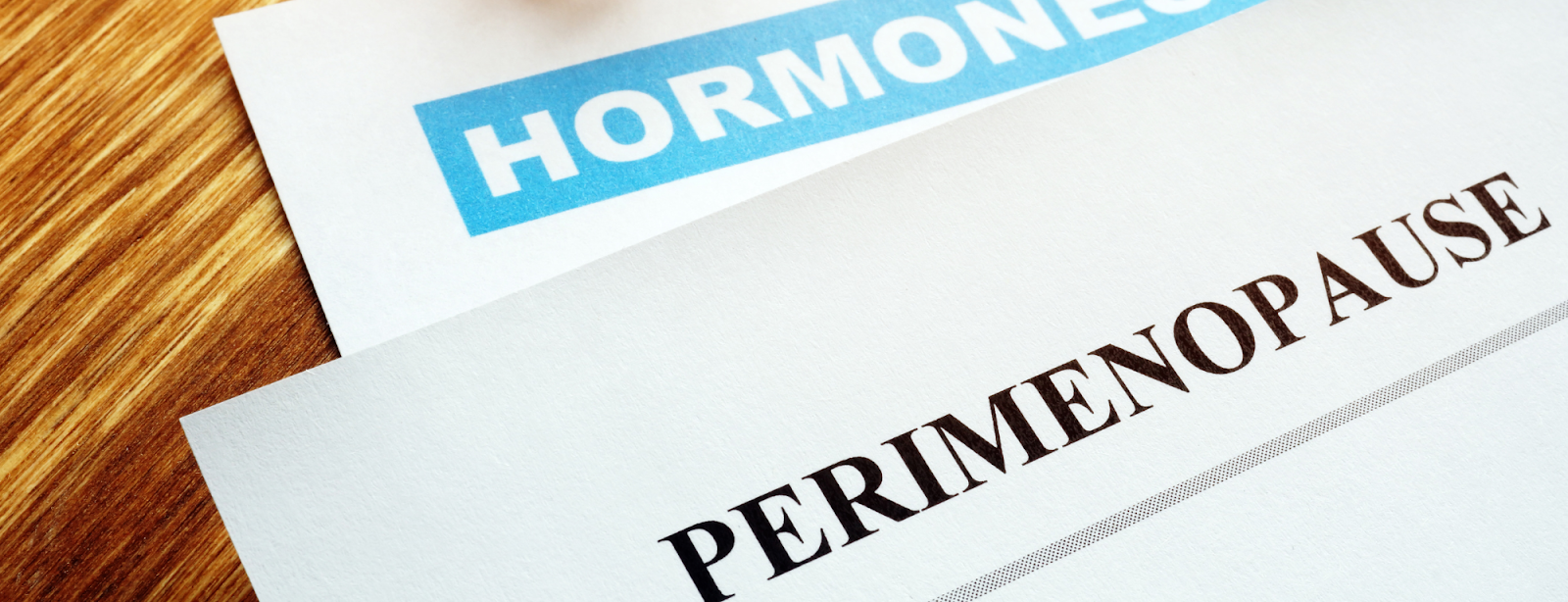Menopause can be a tough time for women, mostly due to a lot of misconceptions and stigmas around it. But we are all getting better at talking more about it and that is a great start.
Perimenopause or menopause transition is a phase that women experience as they head towards menopause. Menopause is when you go without a menstrual cycle for 12 consecutive months. After that, you head into post-menopause where you remain for the rest of your life.
Most women going into this transition have fear about what they are losing, what they don’t know about it, and the label that comes with it. On top of the physiological changes we experience, we also deal with a lot of ageism and sexism. We have to deal with others’ lack of understanding of what menopause is and lack of empathy for what some women experience. The labels of “getting old”, “not sexy” or “not sexual,” etc., start to be used and that is hard to deal with.
Besides having to deal with the stigmas, we’re also starting to see changes in our families. Our children are getting older and not needing us in the same way. This becomes challenging because we feel a sudden lack of purpose. This, with the other changes, can be very overwhelming.
Menopause just means we are moving on from our reproductive years — we are still the same people, despite the changes. Just like we went from childhood to puberty to reproduction, this is another change that we face. We simply run out of eggs and with that, hormones start to change and fluctuate. This can bring on some pretty intense physical and emotional changes, some of which women don’t realize are due to perimenopause. The first step to feeling good in this phase of life is knowing what is happening, why it happens, and learning the signs so you can deal with it more positively.
Here are five things you may not know about perimenopause.
- Perimenopause can start up to 10 years before you hit menopause or even before you miss your first period. This varies for each woman. Some women don’t experience many changes until just a couple of years before. Some things you may notice at first are changes to your menstruation: longer cycles, heavier bleeding and stronger cramps, severe mood swings, and the inability to handle stress like you used to. As you get closer to menopause or missing a period, you may start experiencing more changes that can affect how you live your life. This is why the more you know the better you can manage your day-to-day wellness.
- As we go into menopause transition, there is a myth that estrogen gets lower; for most women, it’s progesterone that drops. This puts us in estrogen dominance. This just means our estrogen and progesterone levels get unbalanced. Estrogen isn’t necessarily high, it’s just high in comparison to progesterone, making it dominant in the relationship. They need to be in balance and work together in order for us to feel our best and for us to have healthy reproductive years. This imbalance can cause a lot of what we experience as we start our journey towards menopause.
- As we get closer to menopause, estrogen and progesterone both start decreasing and fluctuating, affecting our HPAT axis (hypothalamic-pituitary-adrenal-thyroid axis). This is part of our central nervous system. Estrogens (specifically estradiol during menopause), progesterone, and the neurotransmitters serotonin, norepinephrine, and GABA influence the HPAT axis. This change and fluctuation in estrogen and progesterone affects our ability to manage stress and can potentially cause issues with our thyroid, liver, digestive, and immune system function.
- There are a lot of things that women can experience that they don’t even realize are related to hormone changes. Because it affects our HPA axis, it affects our cognitive health. We could experience brain fog (lack of focus and mental clarity), confusion, and forgetfulness. Some other cognitive issues that can be scary are fumbling words and not being able to put a sentence together. With everything else we deal with, this can be very frustrating and upsetting.
- A lot of the changes we experience are similar to hypothyroidism. Things like low energy, digestion issues, mood swings, weight gain, and changes to hair and skin. Conversely, decreasing estrogen can lead to dysregulation of our thyroid. If women are experiencing changes that they think are due to perimenopause that mimic thyroid issues, the best bet is to consult a doctor to rule out hypothyroidism.
The reason this transition can be hard to navigate through for some women is that they just don’t know what it is. The assumption is that estrogen decreases and we can’t reproduce. But when hormones decrease and fluctuate, it affects a lot more than the ability to reproduce, and if we don’t change how we deal with our day-to-day wellness, it could increase risk for metabolic syndrome (a cluster of conditions like high blood pressure, high blood sugar, and abnormal cholesterol levels).
When women go through mood swings, heavy periods, overwhelm, anxiety and even depression, it’s hard for them to talk about it because a lot of the time, they are dismissed or made to believe it’s normal. Women tend to sweep things under the rug until symptoms or conditions get so intense that they can no longer handle it. The lack of education on the topic only further intensifies the problem; when we don’t know that what is happening is connected to perimenopause, we cannot begin to deal with the problems effectively. Information on perimenopause and menopause should be easily available to all women as they enter their mid-thirties.
The answer to avoiding unwanted, intense changes during menopause transition is multifaceted and complex. This is mostly because women will experience very different things during this time. Whether it’s the intensity, the symptoms, or both, what women go through will vary or come at different times. This has a lot to do with genetics but also our lifestyle habits, like stress management, nutrition, and movement.
In a recent survey, 60% of women didn’t feel they were informed at all about menopause; 68% of women didn’t seek out information until “symptoms” had already started. While most women will reach menopause by the age of 53, 80% of women experience some form of a shift in their body and experience changes from the decrease and fluctuation of hormones.
What women need to know more than anything else is that there is nothing to be ashamed of if your experience is worse than other women’s. Some may breeze through it or did have some issues but didn’t know that they were related to hormones.
Women should always consult their doctor to seek out information on menopause transition and menopause. Be your own advocate for your health in midlife. Find out what your options are. Whether you want to be natural, use hormone replacement therapy (HRT) or bioidentical hormone replacement therapy (BHRT), find out the pros and cons. Choose what you feel most comfortable with based on unbiased information. We need to start doing what’s best for our health long before we hit menopause. Starting to focus on our hormone health as we turn 40 will ensure you are more aware of changes as well as possibly minimize changes that come with menopause.
The truth is, if you deal with the changes by improving your overall wellness, you can enter into post-menopause feeling better than ever. You start to feel more empowered and excited about this next phase of life. You will find freedom and confidence that allows you to live more authentically. It’s meant for us to find our paths and do more for ourselves. This should bring more joy and happiness for all women when they embrace the change and what that brings. There really is a lot of power in menopause if we educate ourselves and create a wellness journey to support it.
Sources:
Harper, J.C., Phillips, S., Biswakarma, R., Yasmin, E., Saridogan, E., Radhakrishnan, S., Davies, M.C., and Talauikar, V. 2022. An online survey of perimenopausal women to determine their attitudes and knowledge of the menopause. Women’s Health 2022: 18. Url: https://journals.sagepub.com/doi/full/10.1177/17455057221106890 (accessed Nov. 30, 2022).
Gordon, J.L., Girdler, S.S., Meltzer-Brody, S.E., Stika, C.S., Thurston, R.C., Clark, C.T., Prairie, B.A., Moses-Kolko, E., Joffe, H., Wisner, K.L. 2015. Ovarian hormone fluctuation, neurosteroids, and HPA axis dysregulation in perimenopausal depression: a novel heuristic model. The American Journal of Psychiatry 172(2): 227-236. Url: https://ajp.psychiatryonline.org/doi/10.1176/appi.ajp.2014.14070918 (accessed Nov. 30, 2022).





